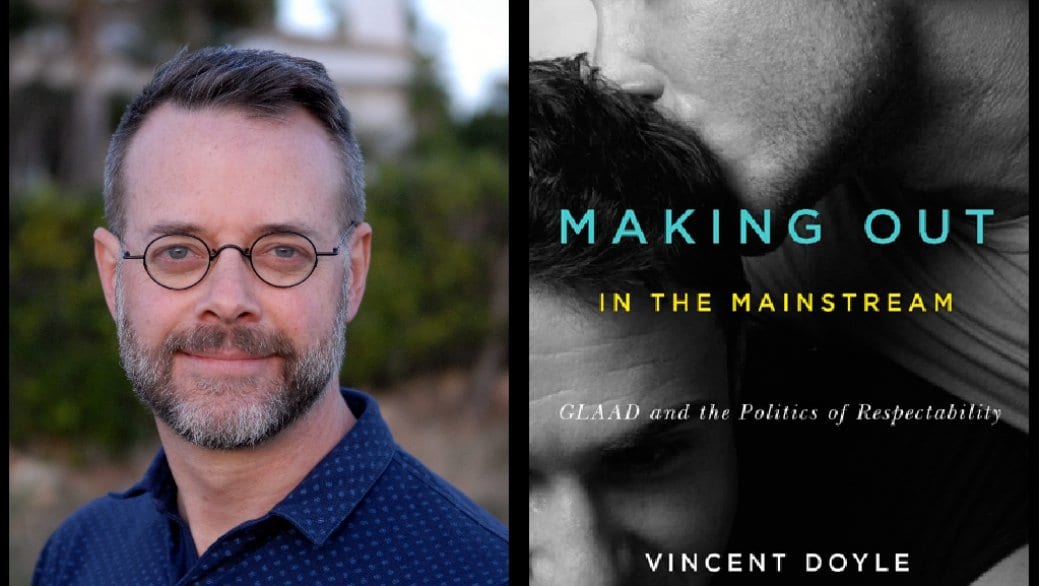Spur Festival has captured the social and cultural imagination of participants across Canada for the last three years. Artists, academics and activists have engaged audiences at Spur through panel discussions, presentations and performances, and queer visibility has been a thread that’s always been woven throughout the festival’s programming.
This year, Spur will host a panel discussion featuring members of Toronto’s transgender community entitled “Trans-Canada” that will focus on preventing discrimination in Canada’s public institutions. A separate event, “Masculinity,” explores the relationship between class, technology and traditional masculine roles and behaviours.
As part of its Books that Spur program, the festival has invited author and academic Vincent Doyle to speak about his recently published book Making Out in the Mainstream: GLAAD and the Politics of Respectability. Doyle’s book is a critical look at the importance of media as a tool of activism and explores the impact of corporate presence in LGBT politics in the US.
Daily Xtra spoke with Doyle about his new book, GLAAD’s rich and controversial history and how Chaz Bono inspired him to set about writing Making Out in the Mainstream.
Daily Xtra: Can you talk about how your research began with Making Out in the Mainstream?
Vincent Doyle: The idea for this project first occurred to me when I heard [Chaz Bono] speak at the University of Massachusetts Amherst, where I was a grad student. It was 1997 and Bono had just been hired as GLAAD’s new entertainment media director. The talk made me wonder how GLAAD went about deciding what its position was on this or that TV show or movie. Bono spoke with absolute confidence about representations that I felt ambivalent about, as though there was only one gay way to think about Ellen’s sitcom or Braveheart or Basic Instinct. The project developed from there with a focus on trying to understand the discussions that go on behind the scenes at GLAAD and the forces that shape them.
What was the attraction to GLAAD and media representation as a subject for your book?
GLAAD was and remains an important organization of the US LGBT movement and the only one devoted specifically to shaping the public image of LGBT people, not just in the US, but also internationally, given the worldwide dominance of US media. I came to GLAAD in 2000 at a time when gay and lesbian visibility was exploding and money was pouring in from corporations trying to target gay and lesbian consumers. It was clear that a big change was taking place and studying GLAAD seemed like a good way to figure out what was happening.
Can you talk about how representation of LGBT people has changed since AIDS?
The AIDS crisis exacerbated historical tensions in the movement between activist strategies oriented to dismantling oppressive structures and more genteel approaches designed to convince the mainstream that we deserve inclusion in society’s dominant institutions. Each side of that divide has its media strategies. GLAAD began in 1985 as a direct action group targeting the homophobia of the New York Post’s AIDS coverage and very quickly evolved into a lobby group working with media professionals behind the scenes to influence how LGBT people are represented. Both confrontational and cooperative strategies have been important in terms of getting us beyond representations of LGBT people as nothing but villains or victims. The change since 1985 has been impressive, but there is still a lot of work to be done.
Books That Spur: Vincent Doyle on Making Out in the Mainstream
Saturday, April 9, 2016, 10am
Hart House, 7 Hart House Circle, Toronto
Spurfestival.ca

 Why you can trust Xtra
Why you can trust Xtra